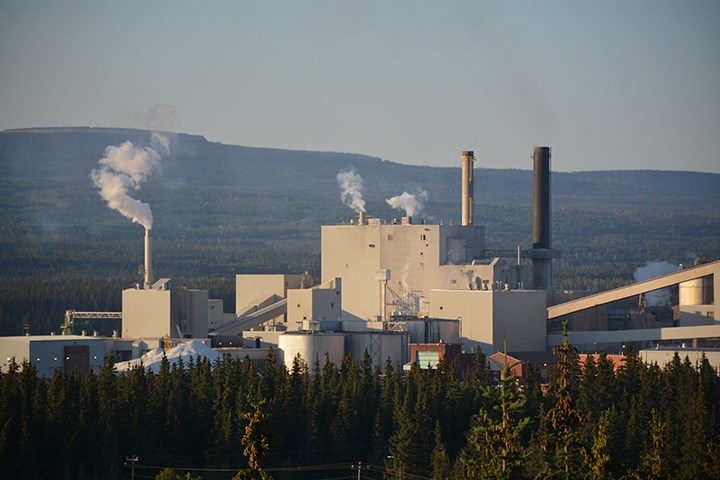Scott Hayes, Local Journalism Initiative Reporter | [email protected]
Various environment-minded organizations raised their concerns to the 51���� in light of West Fraser Mills’ plans to spray a glyphosate-based herbicide called VisionMAX on approximately 4,500 hectares of regenerated stands of forest in the Hinton and Edson areas.
“We do have significant concerns that I think mirror what's going on in the science community,” said Tim Gray, executive director with Environmental Defence, a leading Canadian advocacy organization that focuses on clean water, safe climate and healthy communities.
“Most recently, we've been joining others in challenging the federal government's decision not to review its widespread application and to not look at some of the ecosystem and human health impacts of its use.”
Glyphosate is best known as the active ingredient in Roundup, which was developed by Monsanto in the 1970s. Its effectiveness as a weed killer became well known, although glyphosate-resistant weeds have emerged.
Other concerns have also emerged. In 2015, the International Agency for Research on Cancer released a monograph that classified glyphosate and glyphosate formulations as “probably carcinogenic to humans.” There is further indication of a link between glyphosate exposure and the development of Parkinson’s disease.
West Fraser advertised two public notices in the Hinton Voice on Aug. 4 to advise local residents of the planned activity as part of its Integrated Vegetation Management approach to the use of herbicides as a conifer release tool in this case.
The applications were scheduled to be made on ground and by helicopter sometime between Aug. 10 and continue until Sept. 15.
Those notices indicated that it received approval from Alberta Agriculture and Forestry to use VisionMAX glyphosate herbicide, and that the administration of the chemical compound would be in accordance with requirements made by that ministry of the provincial government as well.
Going beyond human impacts, there is also evidence that glyphosate is harmful to bees. A study published by Science in 2018 states that it “appears to disrupt the microbial community in the bees' digestive system, making them more vulnerable to infection.”
In a prepared email statement, Health Canada said that “no pesticide regulatory authority in the world currently considers glyphosate to be a cancer risk to humans at the levels at which humans are currently exposed,” adding that it continues to monitor for new information on glyphosate, which includes regulatory actions from other governments.
It also pledged to take appropriate action if risks of concern to human health or the environment are identified.
After glyphosate’s risk as a human carcinogen was first raised in 2015, it took two years for Health Canada to re-authorize its use in this country. It concluded that the chemical compound is an important herbicide for Canadian agriculture as well as for weed control in non-agricultural land management, such as forestry.
It also considered glyphosate’s impact on non-target species and concluded that glyphosate, when used according to label directions, is not acutely toxic to adult bees.
The federal government body received several notices of objections during its final re-evaluation decision in 2017, and it responded with its own research.
“After a thorough scientific review, we have concluded that the concerns raised by the objectors could not be scientifically supported when considering the entire body of relevant data,” it stated, noting that it follows a transparent and rigorous science-based regulatory process when making decisions about the safety of pesticides.
Health Canada intends to publish its response to each objection in the Pest Management Regulatory Agency’s (PMRA) Public Registry on Jan. 14, 2023.
The Federal Court of Appeal, however, ruled earlier this year that Health Canada didn’t follow its own rules for regulating pesticides and herbicides and that it needed to reassess its decision.
Friends of the Earth Canada, a nationwide non-profit that works to voice environmental concerns about bees and pesticides, climate change and environmental justice issues, has been involved in objecting to the chemical compound’s re-registration as a pesticide going back to 2017.
“It's an incredibly important matter,” said Beatrice Olivastri, CEO of Friends of the Earth Canada.
“We're very happy that the courts have told PMRA that they need to look for a way to reassess the notice of objections that were filed. What we're hoping this will lead to is an independent review panel of scientists to look at the issues in Canada.”
She said that she thinks the research is at the point now where it's probably time to skip a regular 15-year re-evaluation but to conduct a special review.
“There's more and more consensus that the use and overuse and overexposure in both humans and ecosystems to it is causing considerable risk,” Gray added.
“When you're using it in a widespread way, like aerial application in forests, you're really introducing a novel chemical into that environment that otherwise would never be there. Of course, that has a whole range of impacts.”
A spokesperson for Alberta Agriculture and Forestry provided a written statement that read that when a forestry company decides to use herbicides as a forest management technique, the federal and provincial governments both work to ensure stringent requirements are met through detailed monitoring, reporting and auditing of results.
It added that areas proposed for herbicide application are generally reduced in size as forestry companies apply mitigative measures, such as buffers, to protect identified sensitive areas or manage risk.
In a written statement to the 51����, a West Fraser representative stated that “sustainable and responsible forest stewardship is about much more than trees.”
“We use a variety of treatments to successfully reforest harvested areas as the regenerating forests support a wide range of values, which are all considered when developing our plans,” stated Joyce Wagenaar, the company’s director of communications.
“West Fraser also invests on an ongoing basis into research to explore new and innovative ways to manage vegetation that competes with regenerating seedlings.”




